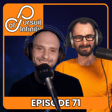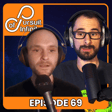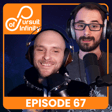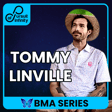
3. Interview: Your Life Lived Well w/ Dr. Kevin J Payne
Kevin is a social psychologist and entrepreneur, author, podcast host, speaker, teacher, and frequent guest interview or panelist. He shares the results of his extensive research concerning how to live a quality life with chronic distress, pain, and illness. He also shares his personal exploits as a collector of experiences — even while battling Multiple Sclerosis for decades. He also never misses a chance to jump from a perfectly good airplane.
Kevin's Website: http://kjpayne.com/
Kevin's Instagram: https://www.instagram.com/yourllwell/
Your Life Lived Well Podcast: https://open.spotify.com/show/6pH548B0mmvhY12H2qq5Qa
_________________
Music By Nathan Willis RIP
Follow Pursuit Of Infinity:
www.PursuitOfInfinity.com
Discord: https://discord.io/pursuitofinfinity
YouTube: https://www.youtube.com/channel/UCPpwtLPMH5bjBTPMHSlYnwQ
Spotify: https://open.spotify.com/show/58he621hhQ7RkajcmFNffb
Apple Podcasts: https://podcasts.apple.com/ca/podcast/pursuit-of-infinity/id1605998093
Instagram: https://www.instagram.com/pursuitofinfinitypod/
Patreon: Patreon.com/PursuitOfInfinity



















